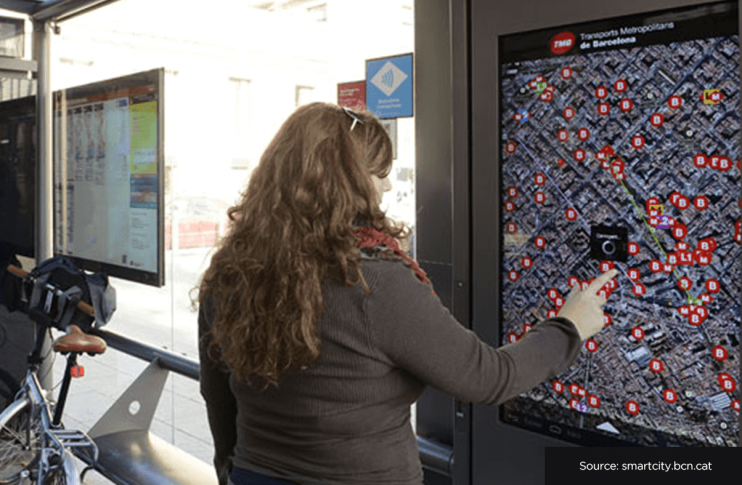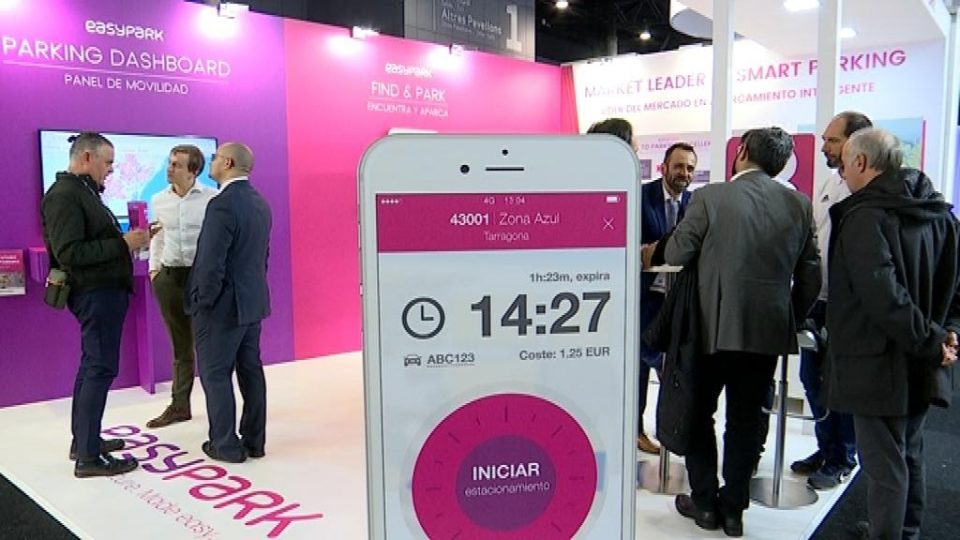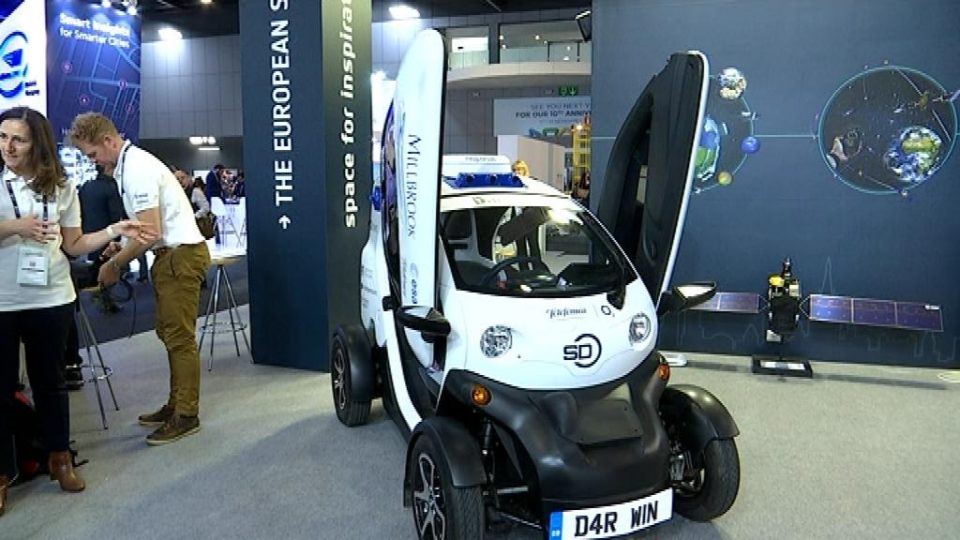Barcelona, one of the world’s smartest cities

Barcelona was one of the first European cities to adapt smart city technologies. About ten years ago, the Catalan capital installed extensive sensor networks that provided government and the private sector with data on transport, energy usage, noise levels, irrigation et cetera. Its technology-base is solid, with a noteworthy open data portal, a good air quality sensor network, and widespread public wi-fi. Only cities like New York City, Singapore, and Seoul outperform Barcelona’s technological infrastructure.
Only New York City, Singapore, and Seoul outperform the Catalan capital’s technological infrastructure

Like other cities, during the last five years Barcelona’s smart city practices changed: Technology is entering more direct the lives of residents because of the broad use of smart phones. They distribute instant information about employment, housing, administration, mobility, health services, security and utilities.
Until recently, city leaders thought of smart technologies primarily as tools for becoming more efficient behind the scenes. Now technology is being injected more directly into the lives of residents. Smartphones have become the keys to the city, putting instant information about transit, traffic, health services, safety alerts, and community news into millions of hands.

In March 2014, the European Commission named Barcelona as the European Capital of Innovation, or “iCapital,”. The prize is awarded for introducing new technologies that help to stay better connected to citizens. This recognition in turn helped to make Barcelona the “Mobile World Capital” through 2023, that resulted in Barcelona becoming the venue of Mobile World Congress.
Technologies that Helped to Transform Barcelona
Barcelona, as a smart city, has achieved a wide range of benefits through investment in IoT for urban systems. Some of them are listed in continuation:
- Street light
LED-based lighting system solution has helped Barcelona to become more energy efficient and reduces the heat produced by the old lamps thus leading to cost savings for the city. With the help of the sensors, the system also receives information regarding the pollution, humidity, temperature, the presence of people, and noise.
- Waste Disposal
The use of smart bins that use a vacuum and suck the waste into underground storage helps to reduce the smell of trash waiting to be fetched and the noise pollution from collection vehicles.
It also enables the city to detect the level of waste that comes from different places and optimize the collection of waste. Meanwhile, the incineration of waste is used afterwards to produce energy for heating systems.
- Bus Transit System
The bus transit system stands out for sustainable mobility and decreasing emissions with the help of hybrid buses. This system also has smart bus shelters utilizing solar panels to provide energy for the screens that show waiting times.
- City Bike System
After many years of public bicycle sharing it might seem just another service, but back in the day Barcelona was one of the first and largest cities to implement the system in early 2007. This initiative is aimed at reducing the number of cars circulating in the city.
- Irrigation System
Various sensors in the ground offer live data on humidity, temperature, wind velocity, sunlight, and atmospheric pressure. It was estimated that the city will earn back its initial investment in building the first phase of the system in one year when they cut water usage by about one quarter.
- Fab Lab
Barcelona was the first city in the world to have a public network of fab labs, small-scale workshop offering (personal) digital fabrication. The premise of this enterprise was simple: “no smart city without smart citizens”. Citizens play a key role in the development of smart cities, therefore it is important that they can participate in the changes at grassroots level.
Barcelona hosts the world’s leading event on smart cities
Since 2010, the Catalan capital is home to Smart City Expo World Congress, the world’s most important showcase of smart cities and urban Technology. Through promoting social innovation, establishing partnerships and identifying business opportunities, the aim of the event is to create a better future for cities and their citizens worldwide.

The event consists of a 3-day congress and expo and has become the annual meeting point for corporate leaders, public representatives, entrepreneurs, experts and academics from all around the globe, engaging them to learn from each other, share experiences, talk about best practices, and open new paths for international collaboration.
Last edition saw a record 600 cities participating, 576 exhibitors, 412 speakers and a forecast for 14,000 visitors. Along with this event, the Gran Via Exhibition Centre is hosting three more: the Circular Economy Summit, iWater and European Utility Week, which turns Barcelona into the world capital of sustainable development.
The Catalan capital has achieved a wide range of benefits through investment in IoT for urban Systems

Autonomous vehicles; the Medibus, a hospital on wheels filled with all the necessary healthcare equipment designed by Cisco, a device capable of detecting free parking spaces, charging spaces for mobile phones that take advantage of the structure of the old telephone booths. These are some of the technological innovations that visitors could see in different editions of Smart City Expo World Congress.
Moreover, in 2018 Barcelona introduced Smart City Week, seven days filled with seminars, activities and events oriented to turning ideas into action.
Barcelona is home of Smart City Expo, the world’s leading event on urban Technology
Barcelona will host the world’s largest event dedicated to urban mobility in 2023Barcelona will be the host city for the UITP Global Public Transport Summit in 2023, the world’s largest event dedicated to urban mobility. Brussels and Dubai where the other candidate cities for a global event that is organized by The International Association of Public Transport, an entity that gathers more than 1,800 members in 100 countries.

According to UITP, the decision was based on Barcelona having a fully integrated Public Transport System, including all modes, alongside an integrated approach to boost model shift and sustainability. The organisation also mentioned Barcelona’s investment and management plans in place (€7.3 billion of investment planned for the next five years) with ongoing investments on all sustainable modes.
